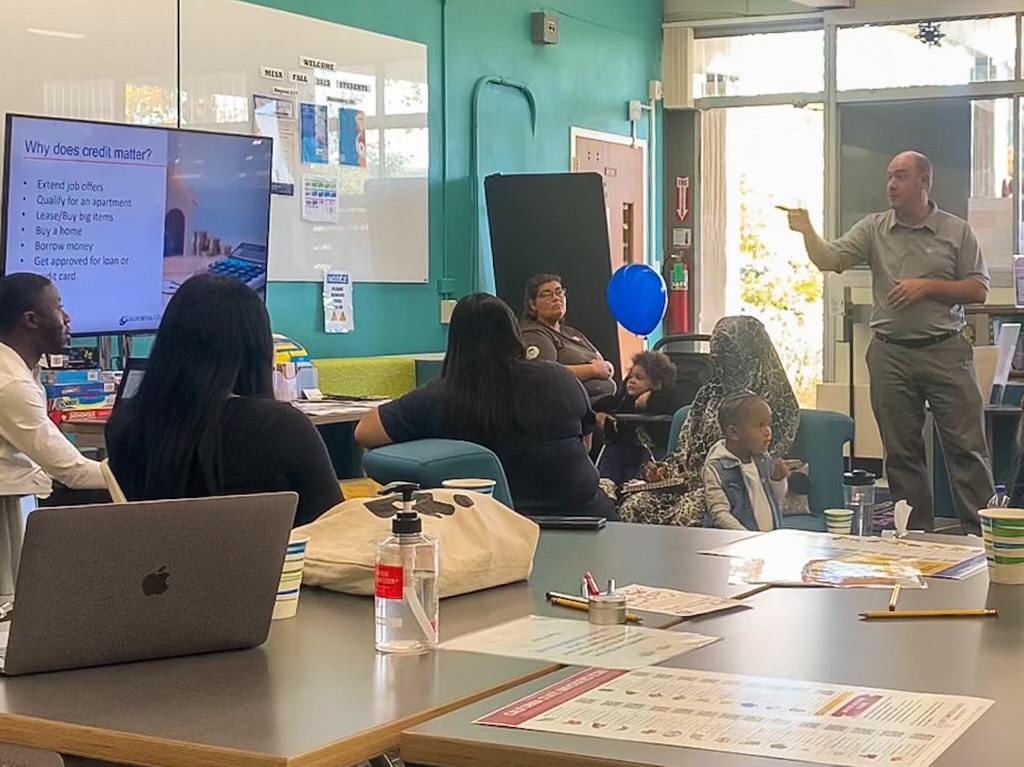On December 13, at San Diego Mesa College, a significant event on financial literacy unfolded, offering essential insights into credit management. Keynote speaker Jevon Boyer, an established finance manager with California Coast Credit Union, captivated attendees with his extensive knowledge gained from over two decades in the finance industry.
Starting his career as Assistant Manager at the Escondido Branch of Cal Coast in May 2017, Boyer has since risen to become a pivotal figure in the organization. His journey in finance began earlier, managing a local bank branch, setting the stage for his impactful contributions to financial education.
In his presentation, Boyer illuminated the critical role of credit scores in personal finance, explaining how they serve as a numerical summary of one’s financial trustworthiness based on past financial behavior. He highlighted scenarios where a strong credit score is vital, such as securing favorable terms on loans and credit cards, and its influence on employment opportunities, as some employers review credit scores during the hiring process.
Boyer’s discussion extended to the practical impacts of credit ratings, noting that landlords and financing agencies often rely on these scores to assess reliability. He stressed that understanding how to positively influence one’s credit score is crucial for financial empowerment and building a solid foundation for future financial stability.
During a Q&A session, Boyer addressed queries about what constitutes a favorable credit score, indicating that scores above 670 are typically considered good by lenders, marking a borrower as low-risk. He also shared essential tips on credit management, such as maintaining credit utilization under 30% of the credit limit and the importance of not closing old credit accounts to preserve credit history length.
Further, Boyer delved into the strategic aspects of credit building, advocating for the responsible use of credit through timely bill payments and cautious spending. He also discussed the importance of regular monitoring of credit reports available from major credit bureaus—Equifax, Experian, and TransUnion—through AnnualCreditReport.com, where individuals can access their reports for free every twelve months, ensuring accuracy and spotting potential discrepancies.
Boyer concluded with an overview of the FICO scoring model, widely used by major U.S. financial institutions, which considers factors such as payment history and total amounts owed. He explained how each component of the FICO score is weighted and the implications of various types of credit inquiries on one’s score.
This enlightening session underscored the necessity of comprehensive financial literacy to navigate the complexities of credit management effectively. It highlighted the transformative potential of informed financial decisions in securing a stable and prosperous financial future.

